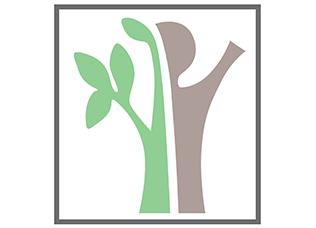DAFNI – Network of Sustainable Greek Islands is an association of island local and regional authorities established in 2006 that brings together the majority of Greek island local and regional authorities and seeks to create opportunities and support initiatives towards their sustainable development. DAFNI is comprised of 52 island authorities among which 4 regional authorities, namely: the Region of North Aegean, the Region of South Aegean, the Regional Union of Municipalities of Ionian Islands and the Region of Ionian Islands and 48 island municipalities from the Aegean and Ionian seas.
The benefits that island local and regional authorities enjoy from participating in DAFNI are summarised below:
- Insular Policy: (i) Participation in EU and global networks and EU consortia; (ii) Exchange of knowledge and transfer of experience; (iii) Strengthening of multi-level governance.
- Technical support and capacity building: (i) Support in strategic planning of infrastructure and local development projects; (ii) Creation of economies of scale for activities that concern more than one municipalities; (iii) Deployment of innovative technologies in pilot projects in collaboration with academic/research institutions; (iv) Capacity-building to island municipality and regional government staff; (v) Access to e-libraries and databases with information on the environment and energy planning in islands.
- Consulting – Publicity: (i) Promotion of innovative financing instruments with the active participation of local authorities; (ii) Information about the possibilities to access national/EU funds; (iii) Participation in events/conferences for networking.
Projects, Programmes and Initiatives
Smart Islands Initiative: Building on years of collaboration between European islands, DAFNI is currently coordinating a pan-European effort of island representatives and stakeholders to mature the Smart Islands Initiative. The Smart Islands Initiative is a bottom-up effort spearheaded by Europe’s island authorities and communities that sheds light on the potential of islands to emerge as ideal territories for the deployment of innovative technologies in the fields of energy, transport & mobility, water & waste management and ICT. The Smart Islands Initiative seeks to demonstrate that islands can host pilot projects and produce knowledge on smart and efficient resource and infrastructure management, which may be then transferred to mountainous, rural and generally geographically isolated areas but also scaled-up in big cities of continental Europe and beyond.
SMILEGOV: DAFNI coordinated the project of 13 islands partners across European insular regions that worked together in clusters to mature sustainability projects through enhanced multi-level governance. Key deliverable of SMILEGOV was the Smart Islands Strategy, which stressed the need to establish partnerships among different stakeholders, ensuring the deployment of sustainable integrated solutions that maximize existing synergies between energy, waste, water, transport and ICT and enable the development of sustainable economic activities on islands.
Kythnos – Smart Island project: The project aims to help Kythnos embark on a local development paradigm that harnesses the unique natural and cultural capital of the island, creates sustainable growth and offers high-quality of life to locals and visitors. Within the framework of the project, innovative technological solutions will be designed and implemented for the upgrade and integrated management of local energy infrastructure, water resources, waste management, transport and mobility and street lighting.
Study for biogas production, Municipality of Naxos: Feasibility study for the exploitation of local agricultural and farming waste for the production of biogas.
Smart Islands Education: This program, a follow-up to a series of actions and part of Smart Islands Initiative, aimed to provide knowledge and updates on new technologies that can provide solutions to the islands’ long run challenges to Greek islands’ teachers, who wished to inspire and support their students to learn and apply such solutions, contributing to the sustainable development of their place.
Plastic bag campaign: Awareness and information campaign, under the Smart Islands Initiative, for 49 island schools, as part of the European Week for Waste Reduction (EWWR). Dafni Network has dynamically put the Greek islands on the European map of the areas that say YES to waste reduction, underlining the islands potential to become areas to flourish circular economy.


